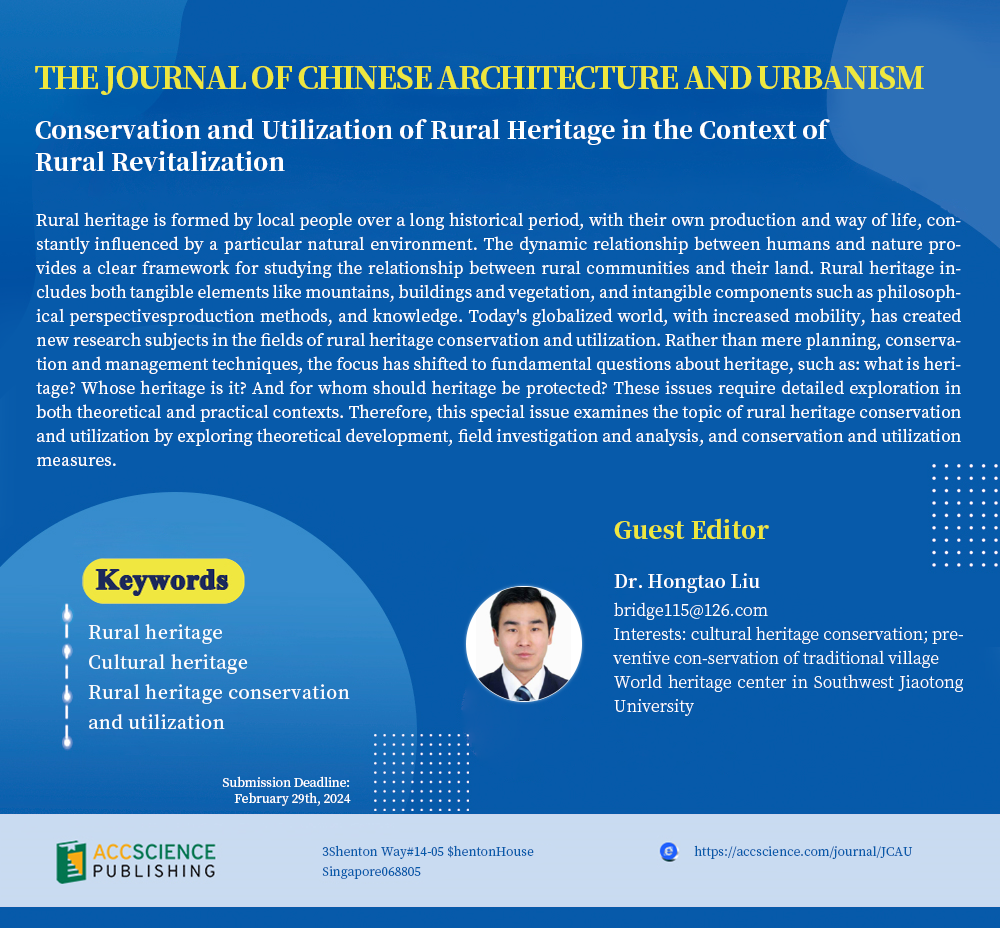
Rural heritage is formed by local people over a long historical period, with their own production and way of life, constantly influenced by a particular natural environment. The dynamic relationship between humans and nature provides a clear framework for studying the relationship between rural communities and their land. Rural heritage includes both tangible elements like mountains, buildings and vegetation, and intangible components such as philosophical perspectives, production methods, and knowledge. Today's globalized world, with increased mobility, has created new research subjects in the fields of rural heritage conservation and utilization. Rather than mere planning, conservation and management techniques, the focus has shifted to fundamental questions about heritage, such as: what is heritage? Whose heritage is it? And for whom should heritage be protected? These issues require detailed exploration in both theoretical and practical contexts. Therefore, this special issue examines the topic of rural heritage conservation and utilization by exploring theoretical development, field investigation and analysis, and conservation and utilization measures.
A study on the block pattern and spatial characteristics of gara in Surat, India
An analysis of the development path of ethnic villages under the protection of traditional Jiarong culture
A study on optimizing public spaces in rural heritage tourist sites from spatial perception: The case of Jinggang historic town
Exploring elite involvement in China’s rural revitalization: A case study of three villages in Shunde
A spatial syntactic analysis of temple cultural heritage settlements on the western Sichuan plateau of China


